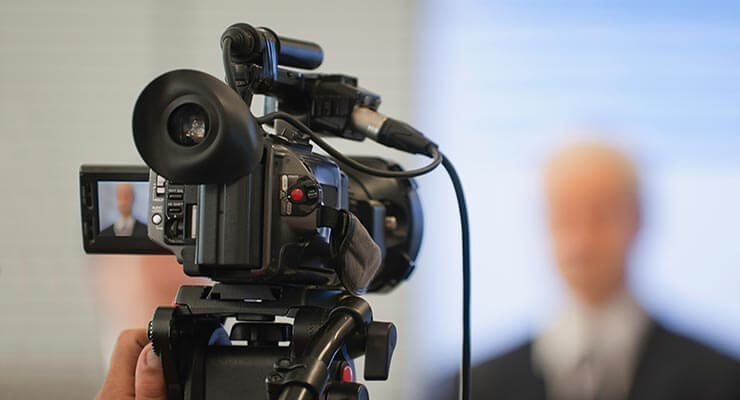Reliable Legal Videography for Legal Success.
Reliable Legal Videography for Legal Success.
Blog Article
The Role of Lawful Videography in Depositions and Tests
Legal videography has arised as a vital tool in both depositions and tests, providing a complex approach to recording witness statements. As lawful professionals increasingly recognize its worth, it triggers a deeper examination of just how these aesthetic records can affect juror understandings and test results.

Value of Legal Videography
Lawful videography plays a critical role in the documents and presentation of depositions and tests. This specific area combines technological abilities with lawful understanding to produce a trusted document of procedures that can considerably affect instance results. The aesthetic facet of legal videography improves the understanding of witness testament, permitting jurors and judges to observe not only the talked words yet also the attitude, emotions, and body language of the witnesses.
Additionally, lawful videography provides an unbiased account of occasions, decreasing the potential for misinterpretation that can happen with composed transcripts alone. This visual paperwork acts as a critical device throughout test discussions, facilitating a more clear and more persuasive narrative for both complainants and offenders. The ability to replay video sectors throughout court proceedings enables legal groups to emphasize key factors, strengthening their arguments effectively.
The relevance of lawful videography prolongs past the court; it also plays an essential function in preserving proof for future reference, whether for appeals or further lawsuit. Thus, its combination into the lawful process is essential for ensuring a fair and accurate depiction of the facts, inevitably adding to the search of justice.

Refine of Legal Videography
While capturing the nuances of depositions and tests, the procedure of lawful videography involves a number of essential steps that make sure high-quality, accurate recordings. At first, an expert lawful videographer prepares by assessing the case materials and understanding the particular demands of the deposition or test. This preparation includes familiarizing themselves with the participants and the context, which aids in recording relevant details.
On the day of the recording, the videographer establishes the required equipment, which normally includes high-definition cameras, microphones, and proper lighting. Guaranteeing optimal angles and audio quality is essential, as it directly impacts the performance of the recording. The videographer connects with lawyers and individuals to develop protocols, ensuring that everybody comprehends the recording process.
Throughout the deposition or test, the videographer thoroughly tape-records the procedures, paying attention to both verbal and non-verbal signs. This consists of catching the behavior and responses of witnesses and attorneys. After the session wraps up, the videographer might edit the video for quality and compliance with lawful standards, creating an end product that accurately mirrors the procedures for future reference and usage in legal contexts.
Advantages in Depositions
The consolidation of videography in depositions offers countless advantages that improve the total process of collecting evidence. One primary advantage is the ability to record witness testimonies with aesthetic and auditory integrity, offering an extra precise depiction of the witness's temperament, tone, and body language. This multidimensional strategy enables lawyers and courts to assess reliability better than conventional written transcripts alone.
Furthermore, videographed depositions offer as a powerful device for protecting testimony. Needs to a witness ended up read being unavailable for trial, their recorded deposition can be played in court, ensuring that their proof remains accessible and pertinent. This facet significantly decreases the risk of losing essential details that could impact case outcomes.

Lastly, videography improves the overall expertise of the deposition process, instilling self-confidence in clients pertaining to the thoroughness of their lawful depiction (legal videography). By leveraging technology, legal experts can substantially enhance the efficiency of depositions
Influence On Trials
In numerous trials, the assimilation of videography can significantly affect the discussion of evidence and the court's assumption. Lawful videography catches witness testimonies and crucial evidence in a vibrant style, allowing jurors to involve with the product on several levels. This visual component boosts the narration discover here element of a test, supplying context and psychological vibration that traditional text-based evidence might do not have.
In addition, video recordings can function as powerful tools for impeachment throughout cross-examination. When inconsistencies emerge in between a witness's previous declarations and their court statement, video evidence supplies an unbiased referral that can guide jurors' point of views. This immediacy and clarity can bolster the trustworthiness of an event's story while simultaneously threatening opposing disagreements.

Future Trends in Legal Videography
As we look towards the future of lawful videography, several arising trends guarantee to reshape its function within the court room. One significant trend is the combination of expert system (AI) in video analysis and editing and enhancing. AI can streamline the procedure of identifying crucial moments in taped depositions, allowing attorneys to rapidly access pertinent web content, thereby improving performance in instance prep work.
In addition, the rise of online fact (VR) and augmented fact (AR) technologies is expected to transform just how jurors experience evidence. legal videography. By immersing jurors in a simulated atmosphere, these technologies can supply a more extensive understanding of complex situations, leading to more educated considerations
In addition, the enhancing demand for remote depositions, sped up by the COVID-19 best site pandemic, will likely proceed. Lawful videographers will certainly require to adapt to new software program and systems to ensure top quality recordings in digital settings.
Lastly, the expanding emphasis on information safety and security will require stricter methods for keeping and sharing video clip proof. As the legal landscape advances, lawful videographers must remain abreast of these trends to keep their relevance and performance in the judicial process.
Verdict
In summary, lawful videography serves a vital feature in the judicial procedure, enhancing the honesty of depositions and tests. As modern technology proceeds to progress, lawful videography is positioned to further change its role within the lawful landscape.
Report this page